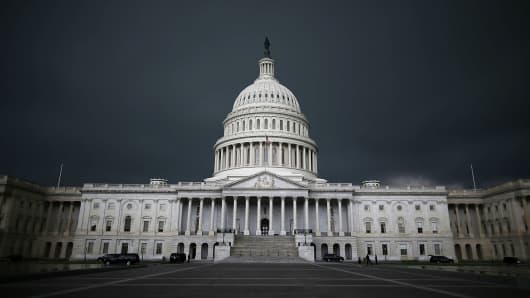Unless Congress acts before Wednesday at midnight, the U.S. government — once again — will officially run out of the legal authority to spend money.
The threat of a government shutdown has been looming for months, and some political analysts believe that last week's surprise resignation by House Speaker John Boehner has reduced the odds that the government will grind to a halt Thursday.
But a spending bill now working its way through the legislative process would only keep the government funded through mid-December — roughly when the Treasury Department is expected to hit the so-called debt ceiling and run out of borrowing authority.
That deadline will set up another showdown — this one with a new speaker running the show in the House — that could inflict even more fiscal chaos and force federal agencies to suspend services and send government workers home.
Political observers are already handicapping the odds the presumptive new speaker, current Majority Leader Kevin McCarthy, R-Calif., will use the occasion to prove his conservative credentials to his House colleagues.
"He's going to have to make some promises to Republicans in the conservative wing of the House caucus that he's not going to roll over to Democrats and Obama," said CNBC contributor Ben White. "As his first act, he's not going to cut a deal with Democrats."
Here we go again.
Why is this happening?
Congress is supposed to pass a budget every year — usually through multiple spending bills for various government agencies and functions — well before the end of the fiscal year, which falls on Sept. 30. When the process breaks down — as it's done frequently in the past decade — the only way to keep the government funded is through what's called a continuing resolution. That measure is basically Congress' way of saying, "Just keep spending what you're spending for a few more weeks or months, and maybe we can pass a real budget by then."
The current CR runs out — at midnight Wednesday.





